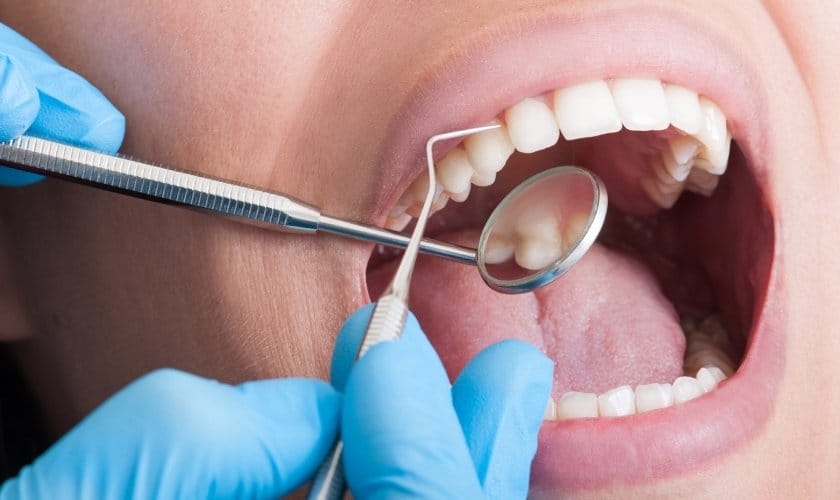Did you know that brushing and flossing alone might not be enough to protect your teeth from cavities? While daily oral care is essential, it’s not always sufficient to prevent plaque build-up, which can lead to cavities. Professional teeth cleaning is a crucial step in maintaining oral health. Regular visits to the dentist for cleanings can significantly lower your risk of tooth decay by removing harmful plaque and tartar that home brushing might miss.
This blog will explain how routine professional cleanings help prevent cavities and promote oral health. By the end, you’ll understand the vital role regular teeth cleanings play in reducing the risk of cavities and keeping your smile healthy.
What Causes Cavities?
Cavities are caused by harmful bacteria that naturally exist in the mouth. These bacteria thrive on the sugars and starches left behind from our food. When bacteria feed on these food particles, they produce acids. These acids attack the tooth enamel, weakening and eroding it over time, which can eventually lead to cavities.
Plaque is the sticky, colorless film of bacteria that forms on teeth after eating. Plaque can accumulate even with regular brushing. Over time, plaque hardens into tartar, which can only be removed through professional cleaning. If tartar isn’t removed, it leads to further enamel erosion, making teeth more susceptible to cavities.
Your diet and oral hygiene habits play a significant role in cavity formation. Consuming sugary foods, frequent snacking, or drinking acidic beverages can fuel bacteria growth, increasing your cavity risk. Inconsistent or improper brushing can also leave plaque behind, leading to tooth decay.
What is Regular Teeth Cleaning?
A professional teeth cleaning, also called prophylaxis, is a dental procedure that involves thoroughly cleaning the teeth to remove plaque, tartar, and stains. During this process, the dentist or hygienist uses specialized instruments to clean areas that are hard to reach with regular brushing and flossing.
Regular cleanings should be scheduled at least every six months, though some individuals may need more frequent visits depending on their oral health needs. These cleanings help ensure that plaque and tartar are removed before they damage teeth or gums.
During a routine cleaning appointment, your dentist or hygienist will first scale the teeth, scraping away the hardened tartar. Then, the teeth are polished to remove surface stains. The final step typically involves flossing and fluoride treatment to strengthen the teeth and promote oral health.
How Does Regular Teeth Cleaning Help Prevent Cavities?
Regular professional cleanings are one of the most effective ways to lower your risk of cavities. Here’s how:
- Removal of Plaque and Tartar: Plaque builds up quickly after eating and drinking. If not removed, it hardens into tartar, which can only be removed by a dental professional. Regular cleanings help eliminate plaque and tartar, preventing them from contributing to tooth decay.
- Better Oral Hygiene: During a cleaning, your hygienist will assess your oral care routine. They can offer helpful tips on brushing techniques and the proper use of floss. Proper guidance ensures you’re cleaning all areas of your mouth effectively, reducing the risk of cavities.
- Early Detection of Problems: Dental professionals can spot early signs of cavities, gum disease, or decay during regular cleanings. Catching these issues early helps prevent them from developing into more serious, expensive problems like root canals or tooth loss.
- Stronger Enamel: After plaque and tartar removal, the polishing process smooths the surfaces of the teeth. This makes it harder for plaque to stick to the enamel, reducing the chances of cavity formation. A smooth surface is essential for long-term tooth health.
Routine cleanings remove plaque and help your dentist assess the overall health of your teeth, allowing you to take action early and avoid costly procedures down the road.
The Role of Professional Tools vs. Home Care
While brushing and flossing are essential, they aren’t always enough to ensure your teeth stay fully clean. Professional tools used during regular cleanings are far more effective at removing plaque and tartar from areas home care misses.
Dentists and hygienists use specialized instruments like ultrasonic scalers and hand tools to remove tartar. Ultrasonic scalers use vibrations to break up tartar, while hand tools are used for precision cleaning around the gum line and between teeth. These tools are designed to clean in places your toothbrush and floss can’t reach.
While important, home care has limitations. Your toothbrush cannot reach deep below the gumline or between tightly spaced teeth, and even flossing may not remove all plaque in hard-to-reach areas. Furthermore, it can be challenging to thoroughly clean the back molars or deep pits in the teeth with just a toothbrush. Professional cleanings ensure these spots are fully cleaned and protected from potential cavities.
What Happens if You Skip Regular Cleanings?
Skipping regular teeth cleanings can lead to several oral health issues. Plaque and tartar will continue to build up on your teeth, increasing your risk of developing cavities and gum disease. As tartar hardens, it becomes more difficult to remove without professional tools, leading to further damage.
The longer you go without a cleaning, the higher the risk of serious dental problems. Without intervention, plaque and tartar can cause tooth decay, gum inflammation, and even tooth loss. Bad breath is another common issue caused by the bacteria that thrive in unclean mouths.
Neglecting cleanings can also increase your likelihood of needing expensive dental procedures, such as fillings or root canals. Regular cleanings help prevent these issues, saving you time, money, and discomfort.
In conclusion, regular professional teeth cleaning is crucial for maintaining a cavity-free smile. It removes harmful plaque and tartar, ensures stronger enamel, and allows early detection of problems. A clean mouth is essential for cavity prevention and contributes to better overall health.
Don’t wait—schedule your next cleaning appointment today and keep your smile bright and healthy. Remember, the benefits of regular cleanings far outweigh the risk of neglect. Take control of your oral health now!

